This winter we are looking forward to a series of monthly nature walks at Chapel Trail Nature Preserve in neighboring Pembroke Pines.
Before Mary Lou and I moved from New Mexico to south Florida in 2004 we learned about the planned opening of this wetland preserve. During visits prior to our relocation we had visited the site, watched the construction of a boardwalk and anticipated its imminent debut.
Unfortunately, vandals set a fire which caused extensive damage and the area remained closed for repairs. A hurricane hit only a couple of years later and turned over almost half of the boardwalk structure, necessitating another closure. Since then we have made many visits and often found it to be hospitable to a nice variety of resident and migratory birds.
These are views of the boardwalk last November:
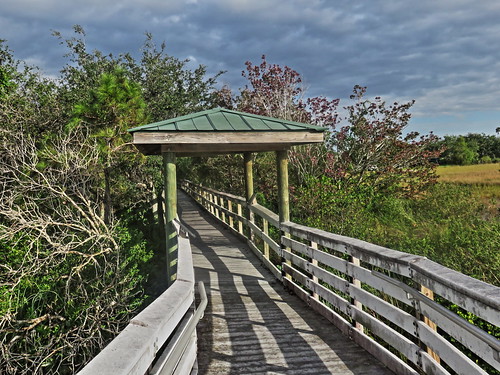
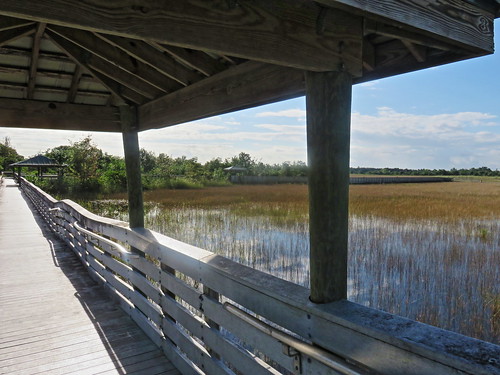
To anticipate what we might see this year, a few of last year's November sightings from the boardwalk vantage points follow.
Blue-gray Gnatcatcher:

Female Northern Cardinal:
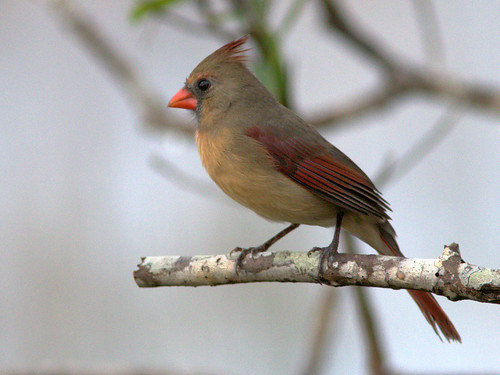
Pine Warbler:
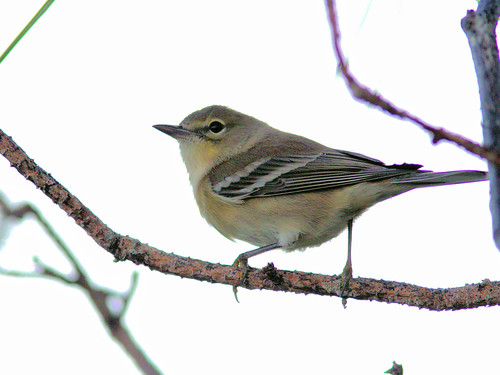
Tricolored Heron:
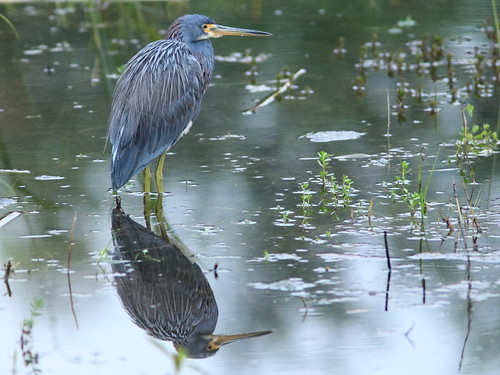
From earlier years--
Prairie Warbler:
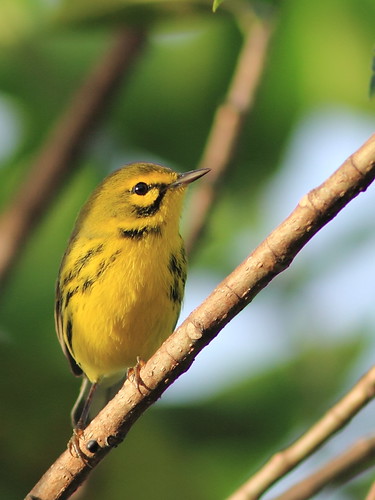
Great Egret:

A Bobcat track in the dew on the boardwalk (Mary Lou saw it, but this is all I have to remember it by):
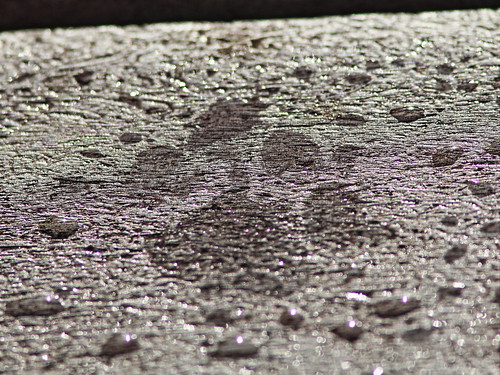
An Eastern Towhee with yellow eyes, a Florida specialty as this species has red eyes in its northern range:
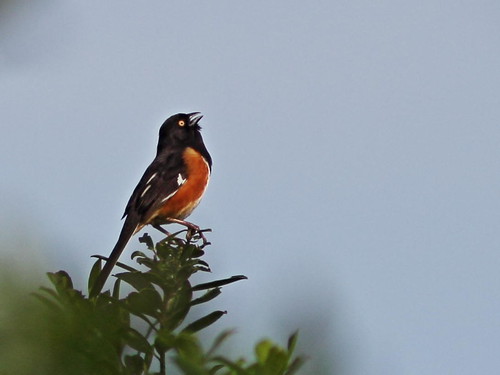
Gray-headed (formerly called "Purple") Swamphen:
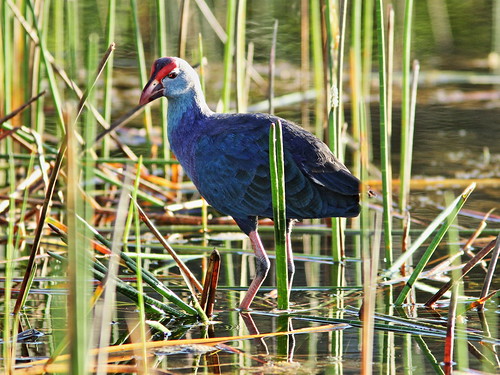
A young Marsh Rabbit:

These are the first two pages of my Chapel Trail photo album from back in 2015. I now have processed over 1000 photos from this location:
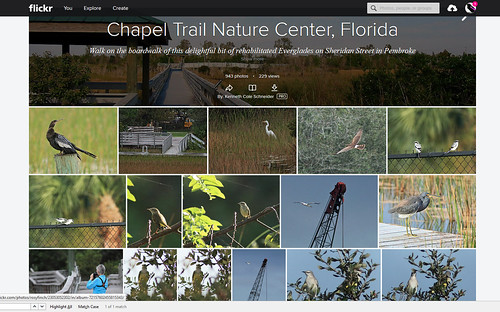
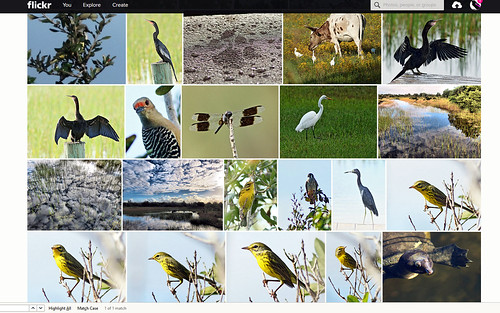
Although it is cut off from the Everglades and fed by rainwater and drainage canals which can cause unusual fluctuation of its water levels, the hydrology of this wetlands roughly mirrors that of the River of Grass-- flooded during spring and summer and gradually drying out as winter advances.
This year, an extremely wet month of May and the need to reduce the water level in Lake Okeechobee in preparation for the hurricane season placed a burden on the canal system and water backed up into the wetlands. This dispersed aquatic prey, and resulted in a lower concentration of herons and egrets throughout the summer. Water conditions should be more favorable this November.
A prominent plant in the flooded areas is Spikerush, which favors longer periods of flooding (hydroperiod), quite the opposite of Sawgrass which declines if its roots remain submerged over several seasons. At Chapel Trail, the Sawgress flourishes on the higher ground, but areas of Spikerush provide habitat for microorganisms and invertebrates which attract fish and wading birds. Swamphens and other wildlife eat their nourishing seeds, shoots, roots and tubers.
Spikerush in a flooded prairie on a rainy morning in November, 2017:
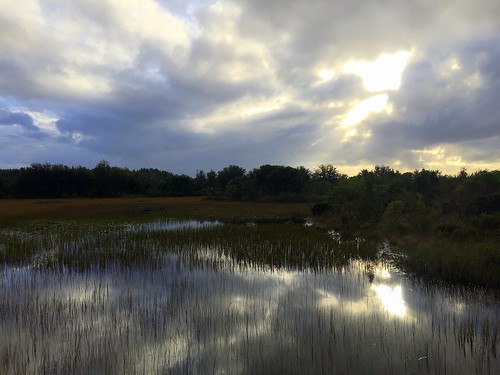
We normally visit Chapel Trail Nature Preserve in order to observe wildlife FROM its 1/4 mile boardwalk. I started thinking about what we might have seen ON rather than FROM this structure, so I searched my photo archives and turned up quite a few creatures!
Click here to see critters ON (not FROM) the boardwalk at Chapel Trail
= = = = = = = = = = = = = = =
Linking to Misty's CAMERA CRITTERS,
Linking to Eileen's SATURDAY'S CRITTERS,
Linking to SKYWATCH FRIDAY by Yogi, Sylvia and Sandy
Linking to WEEKEND REFLECTIONS by James
Linking to BirdD'Pot by Anni
Linking to Our World Tuesday by Lady Fi
Linking to Wild Bird Wednesday by Stewart
Linking to Wordless Wednesday (on Tuesday) by NC Sue
Linking to ALL SEASONS by Jesh
Linking to Fences Around the World by Gosia
________________________________________________
Please visit the links to all these memes to see some excellent photos on display
________________________________________________
The 2017-18 breeding season was another success for the local pair of Bald Eagles. By mid-October 2017 they were working together to reconstruct their nest (click on images for enlarged views):

Egg-laying commenced during the second week of December and by mid-January 2018 the parents were observed feeding unseen eaglets in two positions. However, photos near the end of January revealed only one eaglet, so mortality of the second chick was presumed.
The eaglet, called P Piney 19 (the 19th known hatchling produced at this nest) at 26 days of age on February 5:
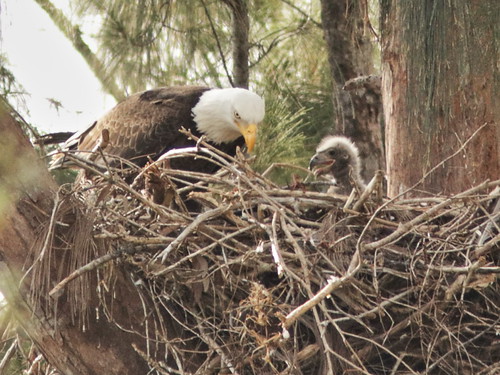
The eaglet, judged by its large size to be a female, fledged on April 2 and returned to the nest to be fed. She was free-flying on April 11, and often foraged with one of her parents:
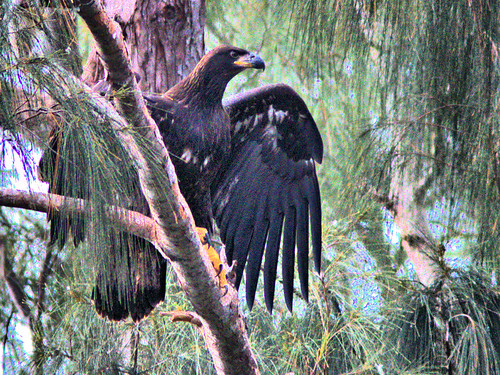
"P Piney 19" lingered near the nest longer than usual and was last seen flying over the local wetlands with one of the adults on July 23, 2018:
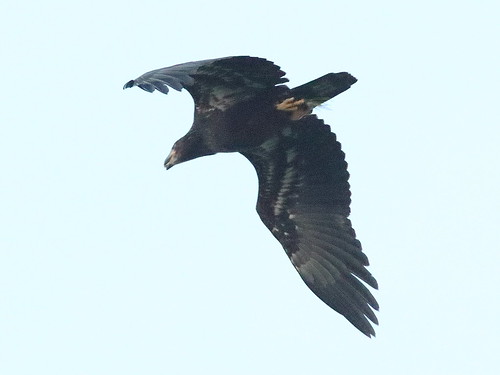
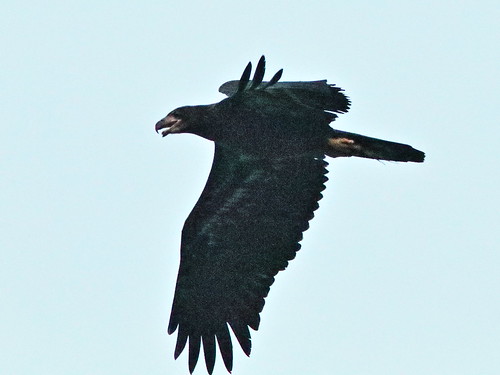
Interesting-- the eaglet was carrying some grass in her talons:
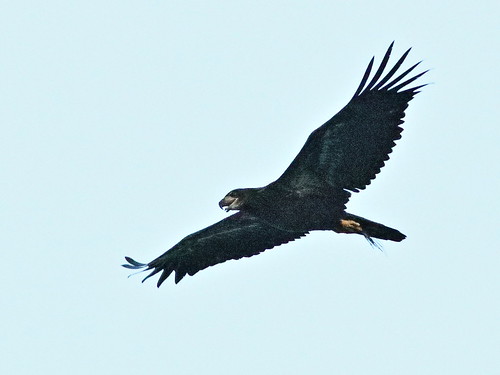
Now the adults have returned to begin a new nesting cycle. Here they are, roosting in a tree near the nest on October 7, 2018. The male (Pride) is to the left, while his mate (Jewel) is perched higher up. Note that the male's smaller body is more tapered towards the tail end while Jewel is much more filled out "below the waist.:"
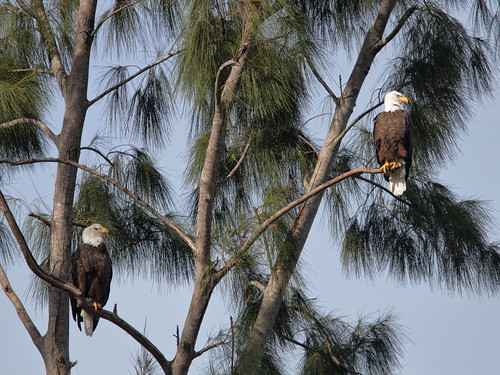
The pair spent much time preening:
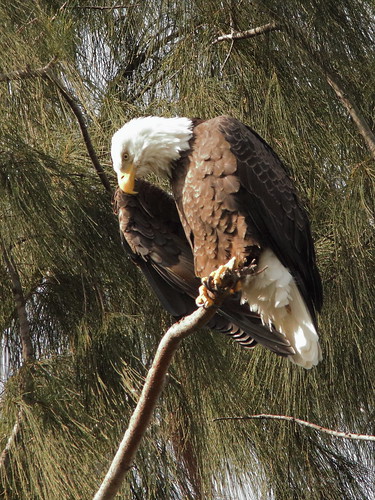
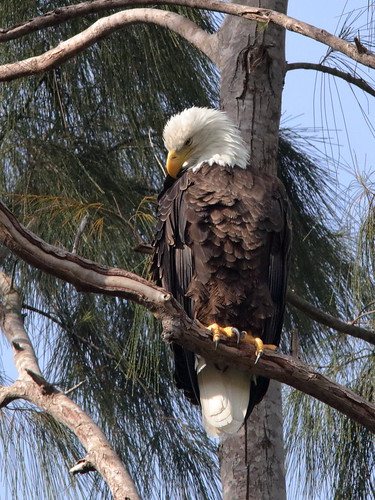
When Pride finished preening he got all ruffled up:
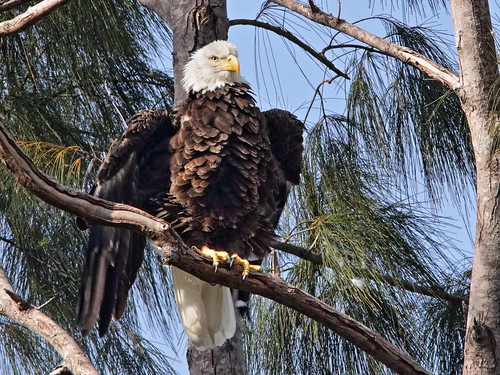
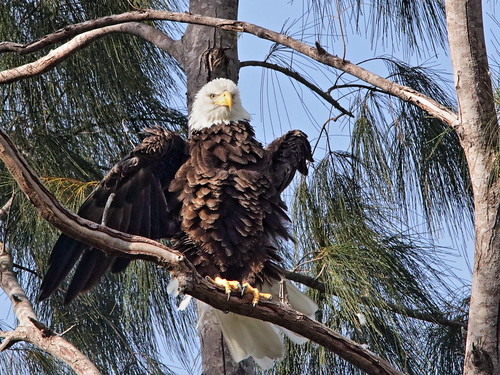
A closeup of Jewel's talons shows the elongated hind toe (hallux), characteristic of the female:

Jewel is checking out something on the ground below:
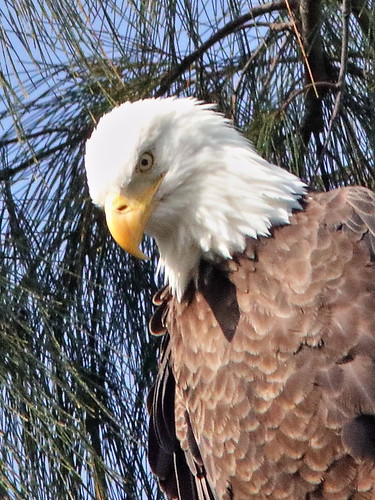
Pride sees it too, but I do not have eagle eyes:
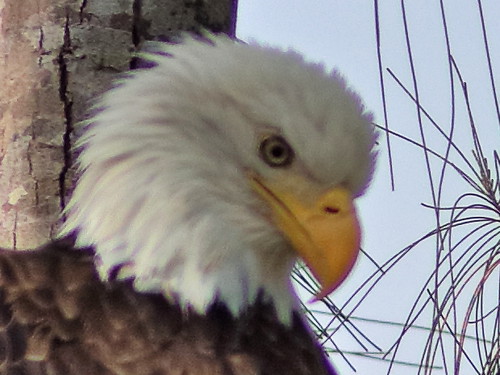 The nest appeared to have some new sticks added:
The nest appeared to have some new sticks added:
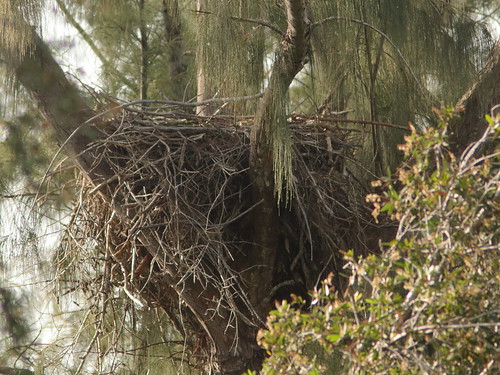
A pink sunrise in early October:
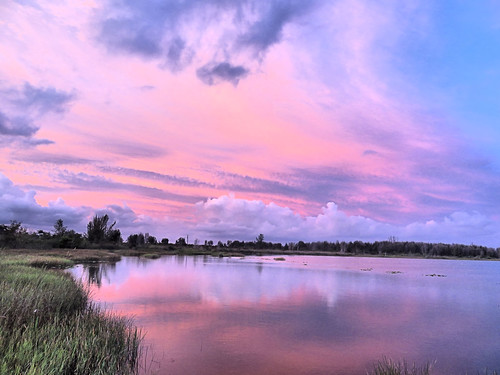
Two female White-tailed Deer did not see me at first as they walked up to the guard rail of the unfinished road in the Wounded Wetlands:
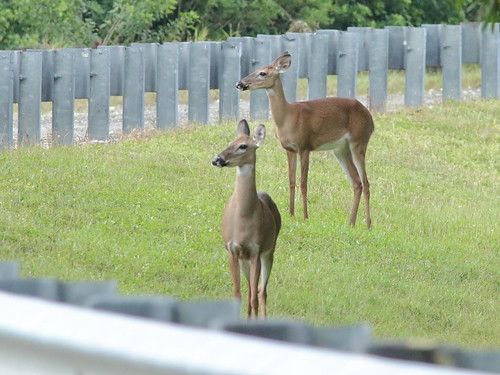 = = = = = = = = = = = = = = =
= = = = = = = = = = = = = = =
Linking to Misty's CAMERA CRITTERS,
Linking to Eileen's SATURDAY'S CRITTERS,
Linking to SKYWATCH FRIDAY by Yogi, Sylvia and Sandy
Linking to WEEKEND REFLECTIONS by James
Linking to BirdD'Pot by Anni
Linking to Our World Tuesday by Lady Fi
Linking to Wild Bird Wednesday by Stewart
Linking to Wordless Wednesday (on Tuesday) by NC Sue
Linking to ALL SEASONS by Jesh
Linking to Fences Around the World by Gosia
________________________________________________
Please visit the links to all these memes to see some excellent photos on display
_______________________________________________
Having sold our Illinois condo in April, this was the first time since 2006 that we spent the entire summer (except for two weeks in early September) at our permanent home in south Florida.
This Northern Cardinal has finished molting into a new, brilliant coat:
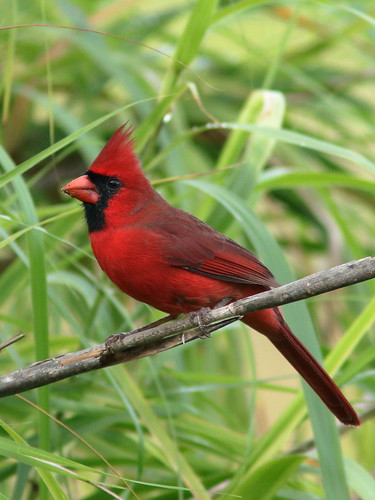
The weather continues its summer routine of heat, humidity and pop-up showers. I have added a new piece of equipment to my hiking gear-- a folding umbrella, which has come in handy several times.
Days usually start out clear, such as this morning under the waning crescent Harvest Moon:
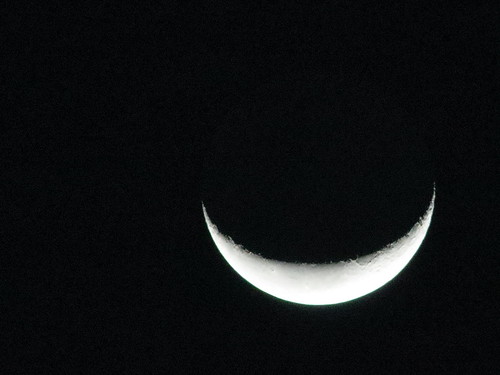
A Great Egret may be out on the lake before first light:
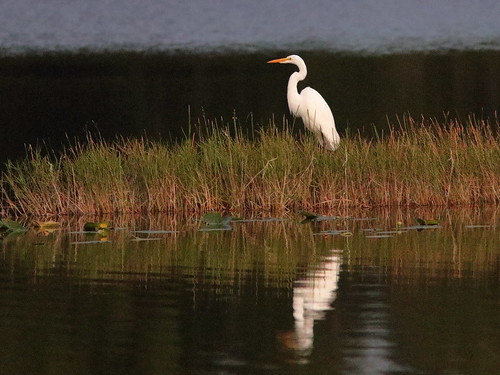
However, one morning the sky looked very threatening at sunrise...
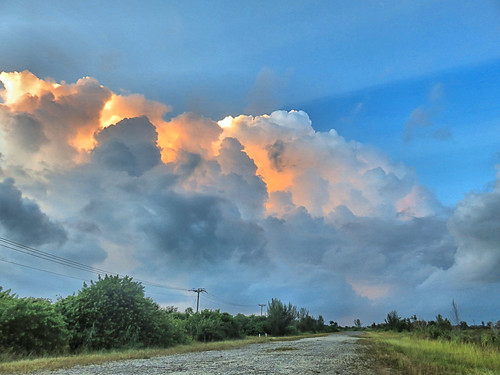
...rain approached...
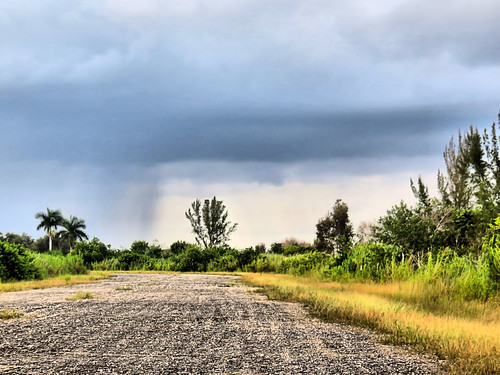
...and the shower was followed by a rainbow.
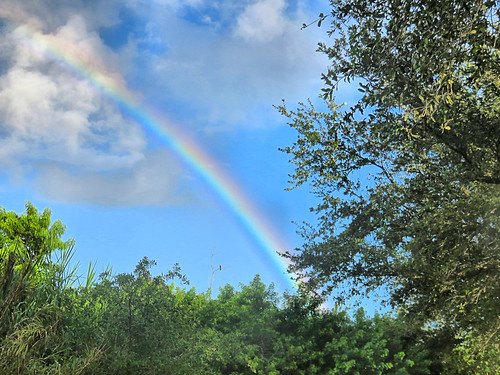
The earliest of our arriving warblers was a Louisiana Waterthrush. It showed up on July 30 and has been present every day through this morning (October 10), an unusually long stop-over. According to eBird, for the past ten years, except for a single sighting in December, 2008, this species has not otherwise been recorded in our County after the end of September. A very early migrant, it usually arrives in south Florida by mid-July and disappears to wintering grounds in the Carribbean or Central America by early September.
Louisiana Waterthrush:
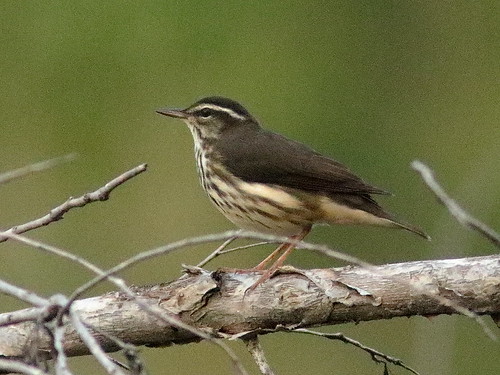
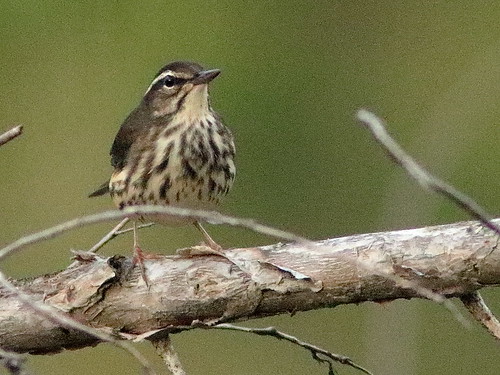
A similar Northern Waterthrush arrived only this morning. Louisiana Waterthrush has a broad white eye line which contrasts with its undersides and buffy flanks. The Northern Waterthrush has a relatively shorter bill, its eye line is buffy and is darker than or matches the color of its undersides, which are more densely streaked, often up into its throat.
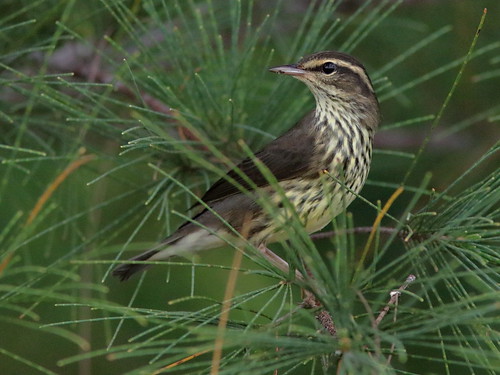
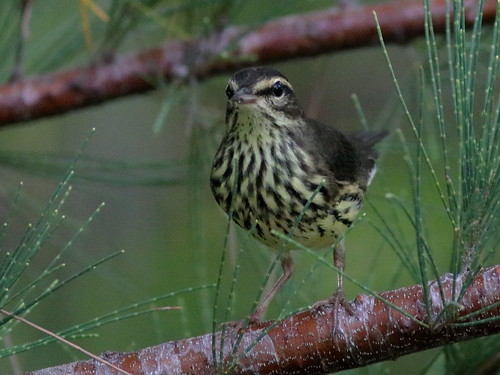
Other arrivals included American Redstarts...
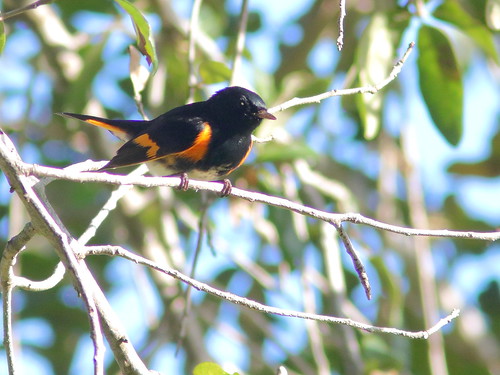
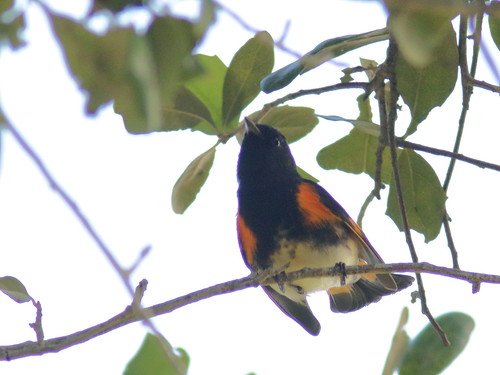
...Blue-gray Gnatcatchers...
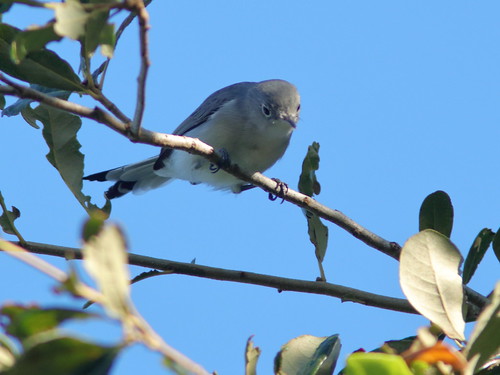
...Red-eyed Vireos...
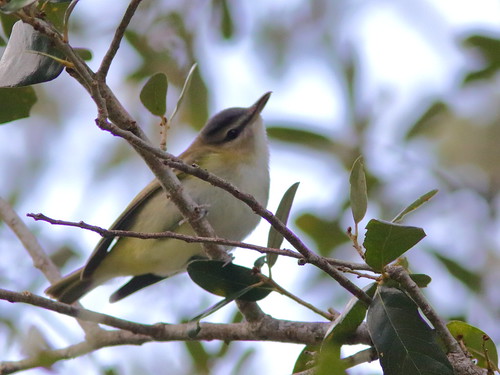
...Ovenbirds...
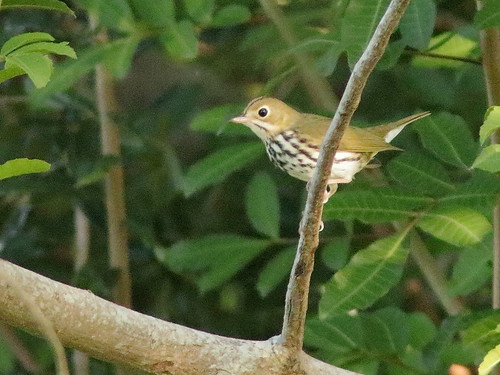
...Black-throated Blue Warblers, eating the Fireweed berries...
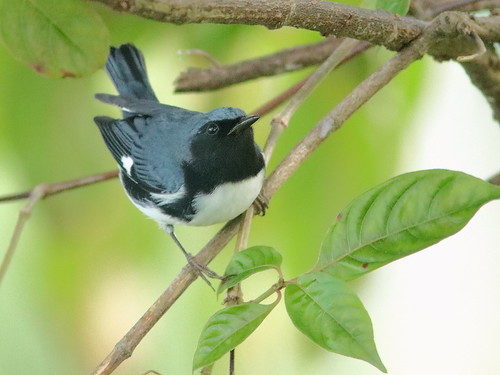
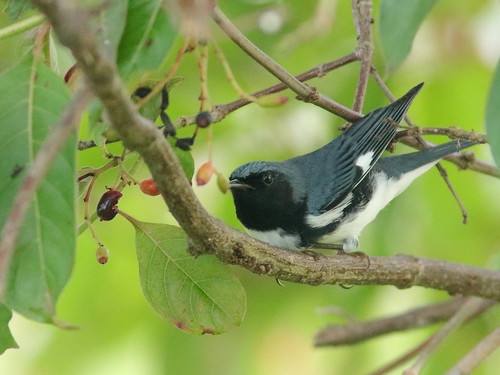
...Palm Warblers...
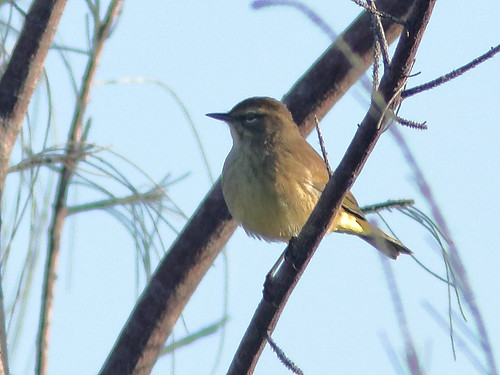
...Northern Parulas...
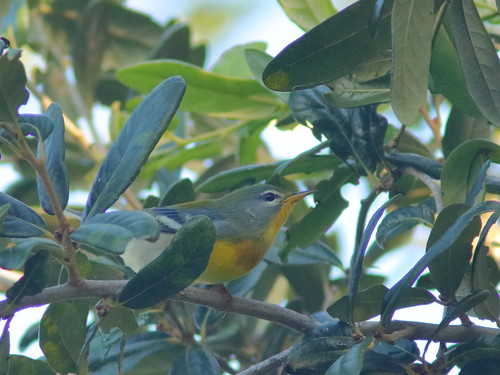
...Eastern Kingbirds...
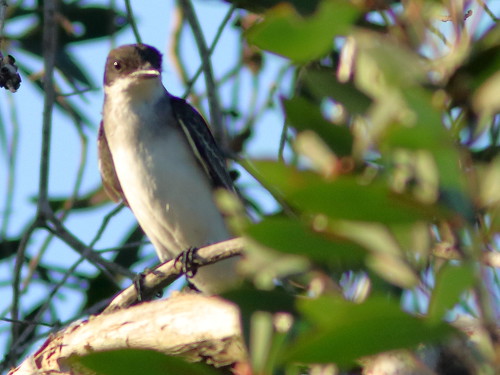
...Ruby-throated Hummingbirds:
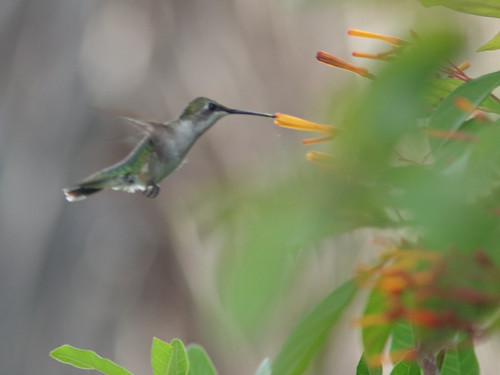
New arrivals bolstered local populations of Prairie Warblers...
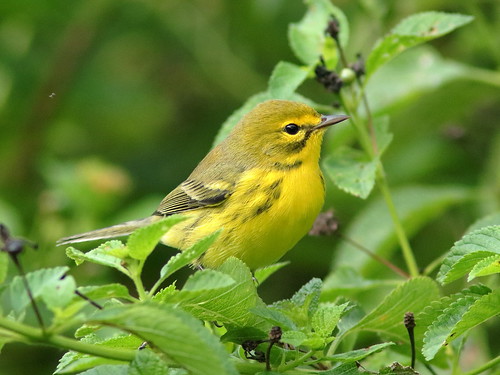
...and Common Yellowthroats:
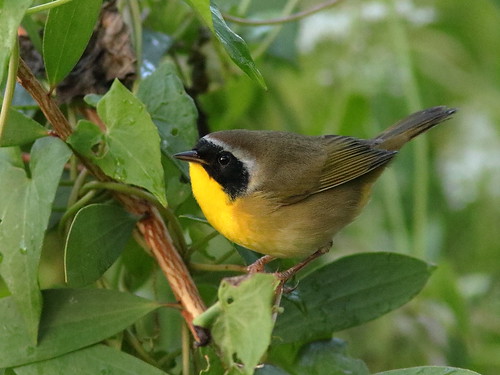
Days are getting shorter. Sunrise is later each morning and has shifted to the south of the gate in "Sundial Alley:"
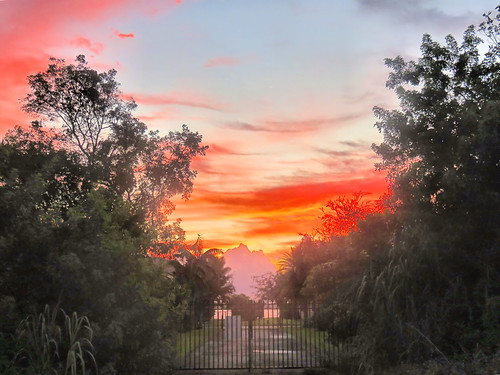
= = = = = = = = = = = = = = =
Linking to Misty's CAMERA CRITTERS,
Linking to Eileen's SATURDAY'S CRITTERS,
Linking to SKYWATCH FRIDAY by Yogi, Sylvia and Sandy
Linking to WEEKEND REFLECTIONS by James
Linking to BirdD'Pot by Anni
Linking to Our World Tuesday by Lady Fi
Linking to Wild Bird Wednesday by Stewart
Linking to Wordless Wednesday (on Tuesday) by NC Sue
Linking to ALL SEASONS by Jesh
Linking to Fences Around the World by Gosia
________________________________________________
Please visit the links to all these memes to see some excellent photos on display
________________________________________________























































